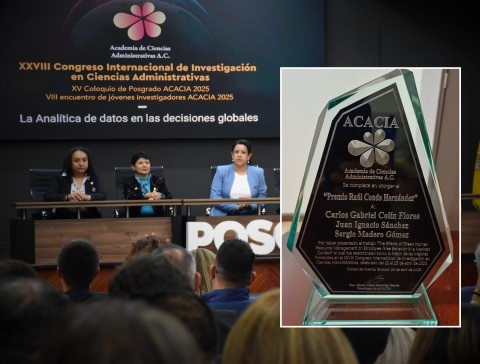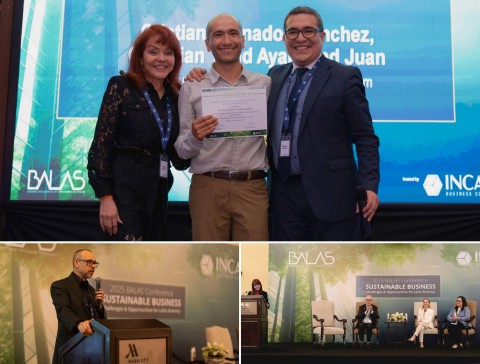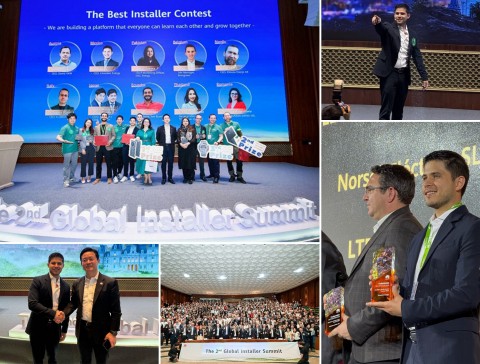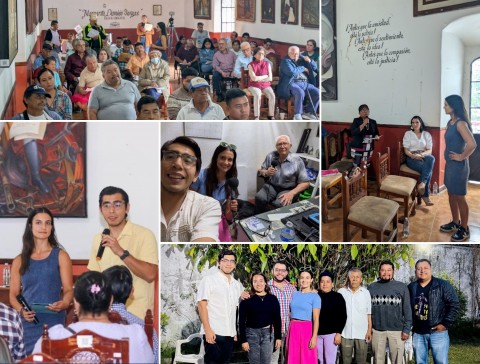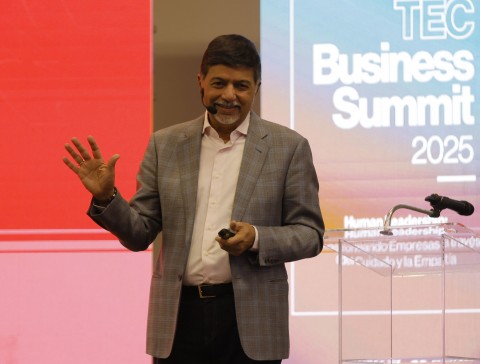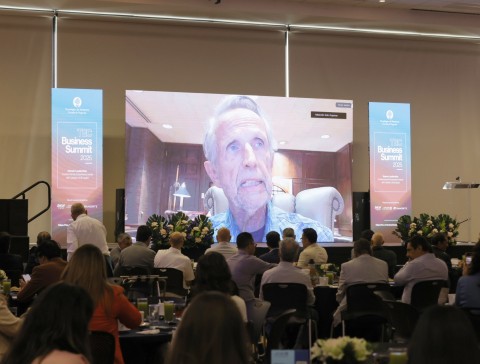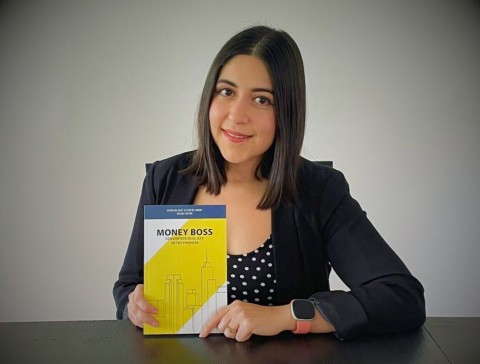True leadership is about reducing suffering, creating well-being, and putting life at the centre of business, says the co-founder of Conscious Capitalism.
By JOSÉ ÁNGEL DE LA PAZ | EGADE BUSINESS SCHOOL
In a world marked by environmental, social, and health crises, business leadership must evolve to meet these challenges. This was the assertion of Raj Sisodia, co-founder of the Conscious Capitalism movement, during his keynote lecture, “Conscious Leadership and Cultural Transformation,” delivered at the TEC Business Summit 2025 in Guadalajara.
The Business School of Tecnológico de Monterrey brought together the business community for this multi-campus event, co-hosted with EGADE Business School, to discuss a new leadership model grounded in care, empathy, and cultural transformation within organisations. Under the theme “Human Leadership: Transforming Companies through Care and Empathy,” the gathering brought together approximately 700 business, academic, and social leaders on April 9 in Mexico City, Monterrey, Guadalajara, Querétaro, and Hermosillo.
“The true purpose of leadership is to heal,” stated Sisodia, who is also President of the Centre for Conscious Enterprises and Distinguished Professor at both the Business School and EGADE Business School of Tecnológico de Monterrey. “We are here to heal—starting with ourselves—and then help others heal, help our communities heal, and heal our planet.”
A CALL FOR HUMAN REVOLUTION
Sisodia emphasised that we are living in an era of profound suffering at every level: personal, organisational, societal, and planetary. In response, he proposed a “human revolution” that places people at the center of business decision-making.
“The way we lead and organise our businesses is generating a high human cost. It is not acceptable for people’s lives to be negatively impacted by their workplace. The opposite should be true: people should be healthier and happier because they are connected to our business,” he stressed.
The author of Conscious Capitalism: Liberating the Heroic Spirit of Business, Firms of Endearment: How World-Class Companies Profit from Passion and Purpose, among other titles, questioned business models centered solely on profit maximization, and called for a cultural transformation that replaces the mechanistic, competitive, and transactional mindset with a view of business as a platform for care and service.
“We need to change the paradigm. It’s not about putting profit at the center and making people and the planet serve profit. It’s about putting life at the center and having profit serve life,” he said.
BUSINESSES WITH A SOUL
Based on his research into companies admired by their stakeholders, Sisodia proposed conceiving of organisations as living organisms with a soul, rather than property or efficiency machines. “Every company has a culture and a unique purpose—that is its soul. The challenge is to preserve it, nurture it, and let it flourish,” he explained.
Speaking on conscious leadership, he put forth a vision of commitment, love, and service: “You cannot lead people unless you love them. And you cannot love them unless you know them. And you cannot know them unless you walk among them.”
For Sisodia, the path toward transformative leadership begins with inner work: knowing oneself, healing, connecting with one’s purpose, and exercising power through empathy.
“Everything that happens in an organisation is a reflection of what’s inside its leader. Leadership is a projection of our internal state,” he said.
At the close of his talk, Sisodia proposed that the role of a leader must evolve toward that of a Chief Evolution Officer: someone who guides the conscious growth of their organisation, raises collective awareness, and promotes a culture of human flourishing.
“Leadership is a sacred act of caring. And business, when done with love and purpose, can be one of the greatest healing forces in the world,” he concluded.
